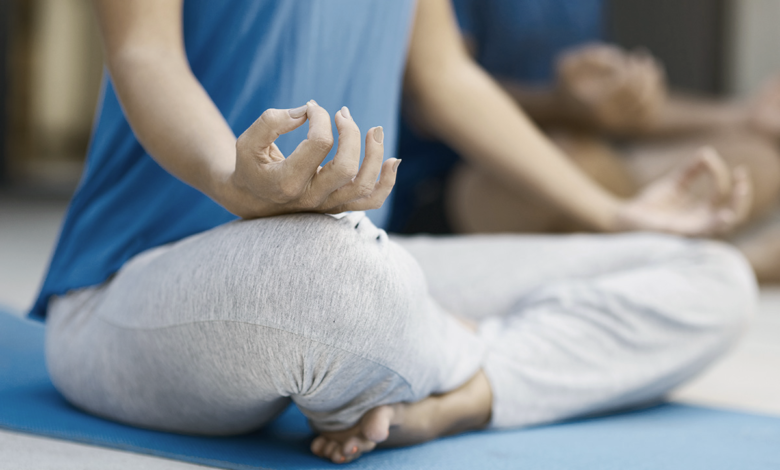Benefits of Meditation: Tips for Incorporating Mindfulness into Your Routine

In today’s fast-paced world, the importance of maintaining a healthy mind and body is more significant than ever. One practice that has gained immense popularity for its holistic benefits of meditation. This ancient technique not only promotes mental well-being but also contributes to physical health. In this article, we’ll explore the diverse benefits of meditation and provide practical tips on how to seamlessly incorporate mindfulness into your daily routine.
Benefits of Meditation
Brief overview of meditation
Meditation is a centuries-old practice rooted in various cultures and traditions. It involves training the mind to achieve a state of deep concentration, relaxation, and heightened awareness. Unlike popular belief, meditation is not confined to any specific religious or spiritual ideology, making it accessible to people from all walks of life.
Growing popularity of meditation
In recent years, meditation has experienced a surge in popularity, transcending cultural and demographic boundaries. More individuals are recognizing the transformative power of mindfulness in combating stress, anxiety, and the challenges of modern living.
Read More : Boost Your Immune System Naturally: Health Tips for All Seasons
Importance of mindfulness in daily life
Mindfulness, a key component of meditation, refers to the practice of being fully present in the moment, without judgment. This intentional focus on the present can have profound effects on both mental and physical well-being.
Physical Benefits of Meditation

Stress reduction and cortisol levels
One of the most touted benefits of meditation is its ability to reduce stress levels. Studies have shown that regular benefits of meditation practices lead to a decrease in cortisol, the hormone associated with stress. By promoting a sense of calm, meditation contributes to overall stress management.
Improved cardiovascular health
Meditation has a positive impact on cardiovascular health, with research indicating a reduction in blood pressure and improved heart health. The practice encourages relaxation, which, in turn, benefits the heart and vascular system.
Boosted immune system
The mind-body connection is evident in the positive effects of meditation on the immune system. Regular meditation has been linked to an increase in immune function, helping the body defend against illnesses.
Mental Health Benefits
Reduction in anxiety and depression
Meditation has been proven effective in alleviating symptoms of anxiety and depression. By fostering a sense of inner peace and emotional stability, individuals can experience relief from the challenges of mental health disorders.
Enhanced focus and concentration
Mindfulness meditation enhances cognitive function, including improved focus and concentration. This heightened awareness translates into better performance in daily tasks and activities.
Better emotional well-being
The practice of meditation cultivates emotional intelligence, allowing individuals to navigate their emotions more effectively. This emotional resilience contributes to overall well-being and a more positive outlook on life.
Tips for Incorporating Meditation into Your Routine
Start with short sessions
For beginners, the prospect of sitting in meditation for an extended period might seem daunting. Start with short sessions, gradually increasing the duration as you become more comfortable with the practice.
Find a comfortable meditation space
Create a designated space for meditation, free from distractions. A tranquil environment contributes to a more focused and rewarding meditation experience.
Experiment with different meditation techniques
Meditation comes in various forms, from mindfulness meditation to transcendental meditation. Experiment with different techniques to find the one that resonates most with you.
Establish a consistent practice
Consistency is key to experiencing the full benefits of meditation. Set aside dedicated time each day for your practice, whether it’s in the morning or before bedtime.
Overcoming Common Challenges
Dealing with a wandering mind
It’s normal for the mind to wander during meditation. Instead of becoming frustrated, gently redirect your focus to your breath or chosen point of concentration.
Managing time constraints
In a busy world, finding time for meditation can be challenging. Break your sessions into shorter intervals throughout the day to accommodate your schedule.
Staying motivated
Like any habit, maintaining a meditation practice requires motivation. Remind yourself of the positive impact on your well-being and celebrate small milestones along the way.
Mindfulness in Everyday Activities
Bringing mindfulness to daily tasks
Mindfulness isn’t limited to formal meditation sessions. Bring awareness to everyday activities, such as walking, eating, or even washing dishes, to integrate mindfulness into your daily life.
Mindful eating and its benefits
Eating mindfully involves savoring each bite, paying attention to flavors and textures. This practice not only enhances the dining experience but also promotes healthier eating habits.
Mindful breathing exercises
Incorporate mindful breathing exercises into your routine to anchor yourself in the present moment. Simple techniques, like deep belly breathing, can be done anywhere and provide instant relaxation.
Meditation Apps and Resources
Overview of popular meditation apps
Several apps cater to various meditation preferences. Explore popular options like Headspace, Calm, and Insight Timer to find guided sessions suitable for your needs.
Guided meditation sessions
Guided meditations are excellent for beginners and experienced practitioners alike. They provide structure and guidance, making the meditation process more accessible.
Online resources for meditation
Beyond apps, numerous online platforms offer guided meditations, articles, and community support. Utilize these resources to enhance your meditation journey.
Personal Success Stories
Real-life experiences with meditation
Discover how individuals from different walks of life have incorporated meditation into their routines, sharing personal stories of transformation and positive change.
Positive impact on individuals’ lives
Explore the profound impact meditation has had on personal and professional lives, from increased productivity to enhanced relationships and overall well-being.
Read More : Unlocking the Healing Properties of Herbal Remedies: Tips for Use
Conclusion
Recap of meditation benefits
In conclusion, the benefits of meditation extend beyond physical and mental health, touching various aspects of our lives. By embracing mindfulness, individuals can enhance their overall well-being and navigate the complexities of modern living with greater ease.
Encouragement for readers to incorporate mindfulness
As you embark on your meditation journey, remember that it’s a personal practice with no one-size-fits-all approach. Experiment with different techniques, be patient with yourself, and enjoy the transformative journey toward a more mindful and fulfilling life.
FAQs
Can meditation replace traditional forms of exercise?
- While meditation offers unique benefits, it is not a substitute for physical exercise. Incorporate both into your routine for a well-rounded approach to health and well-being.
How long does it take to see the benefits of meditation?
- The timeline for experiencing meditation benefits varies. Some individuals notice changes in a few weeks, while others may take longer. Consistency is key to unlocking the full potential of meditation.
Are there specific types of meditation for beginners?
- Yes, beginners may find mindfulness meditation or guided meditation suitable. Start with shorter sessions and gradually explore different techniques to find what resonates with you.
Can meditation help with insomnia?
- Meditation can be a helpful tool for managing insomnia by promoting relaxation and reducing stress. However, individual results may vary, and it’s essential to consult with a healthcare professional for persistent sleep issues.
Is meditation suitable for all age groups?
- Yes, meditation is suitable for individuals of all age groups. Adapt the practice to suit the age and needs of the practitioner, whether it’s children, teenagers, adults, or seniors.











